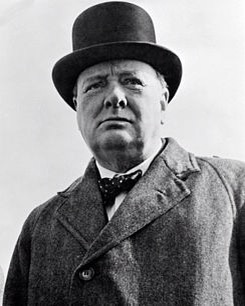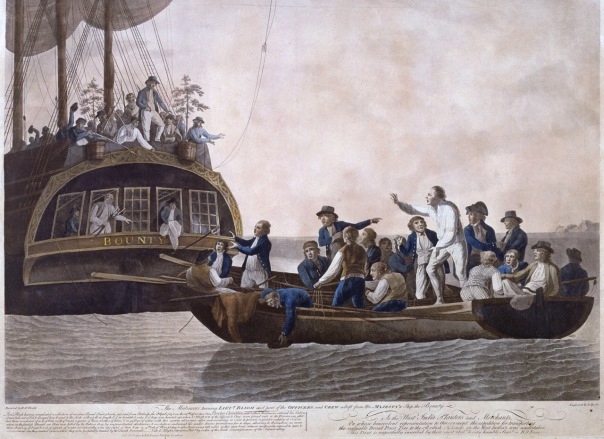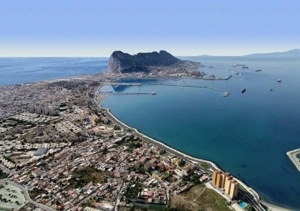Recently a speech given by our former Prime Minister on the topic of sensible economics caught my attention. There is growing agitation in the country for the end of austerity. An economic policy that has failed to achieve any of its targets. Realising his heritage was at stake he gave a speech explaining why it would be foolish to abandon this sensible economic programme which he had initiated. For this man and all practitioners of sensible economics, the growing numbers of people using food banks, stagnant or falling incomes etc. are not a sign of policy failure. What people failed to understand he said was that these sacrifices were necessary for the greater national good. Sacrifices which were necessary to rectify the failings of past governments.The problem was not bad economic policies but the impatience of the ignorant majority.
Sensible economics is convincing because all the words in which it is spoken are suggestive of good sense. It is so convincing that it has become the accepted dialogue in which the economic debate is conducted. Who could be against sensible economics when it states that the ‘books must be balanced’ and that we should guard against ‘paying ourselves more than is prudent’. Any deviation from the path of sensible economics such as a return to ‘tax and spend’ threatens to return the UK to the bad days of the past. However sensible economics is not economics, its just a number of moral and commons sense phrases that one would hear in conversations at the golf club bar or at the dinner parties in Notting Hill, which have become the authoritative dialogue in which all matters economic are discussed.
Sensible economics does appear to offer a number of simple policy solutions to today’s problems that all can understand. Everybody knows that civil servants contribute little of value to the economy, so the best policy is to reduce their numbers to reduce costs. An argument that is so convincing that all governments over the past thirty years have done this. A good government is one that employs less civil servants than it did than when it first came into office. Ignored by the various governments is that these civil servants provide an invaluable source of expertise necessary for good government. Our rail industry’s record over investment decisions is one of constant failure. Projects have been badly managed with so many cost over runs that they government has been forced to cancel a programme of electrification of the rail network, because it the funds for this programme have been squandered on other projects. While the government can blame incompetence in the railways on others what it cannot do is shift the blame for other major failures. Regardless of reforms implemented as part of sensible economics programme the economy is preforming as badly as ever or even in some examples worse than ever, as is demonstrated by the trade deficit. The UK’s trade deficit is not only the highest as proportion of GDP for a developed country but it is worsening.
I can quote an example of this thinking from my local community network. When I expressed concern about an overly slow response time (30 minutes) by the police to a serious crime in which a member of my family was involved; I was told by a number of correspondents that this was not due to a lack of police numbers, but bad police practices. According to them the police did not respond to a young man threatening shop staff and customers with a hammer; because they were too busy completing their paper work, too which they gave priority. Sensible economics has permeated throughout society so thoroughly that even the most nonsensical of statements such as this one are believed. In fact the reason for the delay was that the police needed time to assembly a team armed with tasers. All such teams at the time of the incident were otherwise engaged.
Perhaps the best explanation of the sensible economics being the only dialogue in which the economic debate is conducted comes from the writings of Foucault. Risking over simplifying his work, what he states is that control of society comes from the control of language. Language is the language of the powerful, as the meaning of the words used in the public debate are given them by the powerful. Such as the following: the poor are welfare scroungers, poor because they are indolent and lacking in initiative. It is their personal failings that explain their poverty. Welfare programmes only encourage this indolence and should be cut back. If welfare programmes are wasteful it provides a reason for the wealthy to avoid taxes, as there taxes will only wasted on the useless poor. When this becomes the authoritative dialogue in which public debate is held it becomes the prism through which any thing of any significance is viewed in society. Only yesterday I read in the papers that public servants have lost there public service ethos. What nurses today lack it is the care and compassion that motivated their predecessors. When the public debate is conducted in terms that vilify them, it is easy to deny nurses their claim for a living wage. This is the stuff of sensible economics, it nothing more than a means of entrenching the power of the rich and powerful, through denying a hearing to the alternative view.
Sensible economics or Neo-liberalism has had an easy ride. Rather than challenging the tenets of this dialogue, social democratic and opposition parties have been over impressed by the electoral success of the right and adopted its language. They remain the opposition in name, as they believe that elections can only be won by adopting the policies of sensible economics. It was the former social democratic government that introduced the unfair mean testing that the current government uses to deny the poor and disabled their welfare claims. When the opposition adopts the language of its opponents, it is signalling that it has lost the argument, its surrendered to its opponents.
What Foucault failed to understand is that the dialogue of the powerful is not all pervasive. There are other ideologies and dialogues in society.* Perhaps best described as the dialogues of the loser. Sociologists have a term that describes these dialogues, soteriology. These are dialogues that explain why certain groups are unfairly disadvantaged and discriminated against. Socialism is one such soteriology which was accurately described by Durkheim as a ‘cry of pain’.
These subordinate or challenger dialogues appeared to disappear because of the all pervasiveness of sensible economics. The media is largely controlled by billionaires who could deny a voice to any alternative messsage. The parliamentary left having adopted the ideologies of sensible economics for fear of losing the access to power have been a useful ancillary in suppressing the alternative dialogues, as to admit the validity of other dialogues would demonstrate the falsity of the current policies.
However as the failures of sensible economics has become more apparent, this dialogue has been losing its grip on the popular imagination. When the Prime Minister dismissed a nurse’s claim for a living wage, as there being no money tree, she stretched credulity too far. The narrative of nurses being forced to go to food banks because of low pay was to well entrenched in the public imagination to be so easily dismissed. Also a dialogue that claims to be authoritative discredits itself when it resorts to childish language borrowed from fairy tales.
Once a challenger dialogue or ideology is giving public space it becomes harder for the dominant ideology to maintain its dominance. Sensible economics strength comes from it being the authoritative source of truth. Once it is questioned its authoritative voice seems to become less authoritative and truthful. It cannot stand public scrutiny. This public scrutiny has come from the opposition party which has become infected with a challenger ideology. No longer does the opposition repeat the truths of the governing party but it challenges them. Often demonstrating that the ‘emperor really has no clothes’, the new social media gives a voice to these new challenger dialogues. They have been so effective that a media baron who considered himself the kingmaker, a man who believed that politicians could only succeed if they had they his support, discovered that social media had destroyed his power. He ran a sustained campaign of invective against the socialist leader of the opposition in his media outlets but failed prevent the opposition taking effective power away from his nominee.
This essay is not intended to argue the superiority or otherwise of challenger ideologies such as socialism but to suggest that when there is a dominant unchallenged dialogue the result is poor government policy making. If decisions are made in accordance with the established truths of sensible economics and are never subject to challenge from believers in alternative dialogues silly decisions can be made. The government as an economy measure reduced the naval planning and ship design departments to a bare minimum. Consequently when the navy wanted to build a fleet of modern warships they lacked the ship design expertise and had to buy in help from the Americans. Unfortunately the poor standard of oversight meant these billion pound ships when delivered to the navy proved to be faulty, they were prone to engine breakdown. At one time the new Type 45 destroyers were in dock together, unable to put to sea because of faulty engines. If there was a strong political opposition either inside or outside parliament such poor decision taking would be less likely to occur as policy decisions would be subject to criticism. In such circumstances the folly of dismissing nearly all of the navy’s ship design staff would have been highlighted. When sensible economics dominates the political debate, it being nothing more than a collection of common sense phrases it encourages policy making made in ignorance. It is a doctrine of no expertise, any politician can grasp its essence so why need to consult experts.
- This idea of different ideologies competing for dominance I have borrowed from Antonio Gramsci






